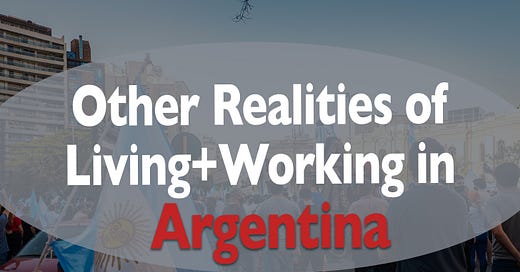The "Other" Realities of Living+Working in Argentina
With a big backpack and my privileges, I had the chance to experience visiting and living in different countries like Denmark, Poland, and Bulgaria. I have yet to return to Argentina. Here is why.
This is Part III of a 5-part series on living and working in Argentina in the wake of their new president, Javier Milei. In Parts I and II, we heard from Jonathan on how he manages his personal finances using cryptocurrency. In Part III, we hear from Lucia Martin who was born and raised in Argentina, but can no longer see herself living in her country o…
Keep reading with a 7-day free trial
Subscribe to 24Hour Journal to keep reading this post and get 7 days of free access to the full post archives.



